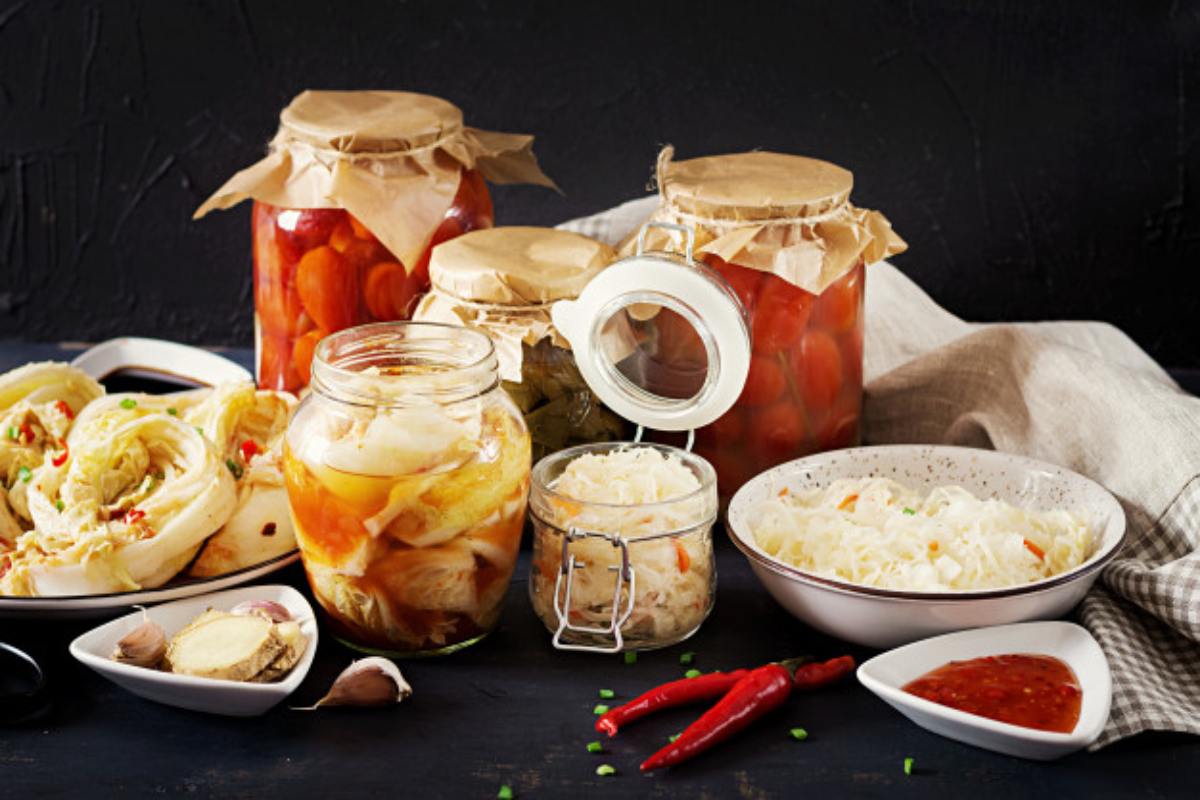Not all types of bacteria are bad for the body. Probiotics are becoming increasingly popular as they offer several benefits to the body and also mood support.
Including probiotics in the diet allows good bacteria to thrive in the gut and other systems of the body.
Probiotics can help reduce symptoms of irritable bowel syndrome, common cold, eczema, constipation, infectious diarrhea, and other conditions.
Kids can also benefit from adding probiotics rich in food to their diet.
Table of Contents
What Are Probiotics?
Probiotics are found naturally in many types of food such as yogurt, fruits, and vegetables but the modern Western diet is typically lacking in adequate amounts of probiotics.
The body contains a community of germs called microbiomes, consisting of viruses, fungi, and bacteria
These can be found in the skin, saliva, urogenital tract, and gut. To maintain optimum health of certain systems of the between, there needs to be a good balance between the good and bad germs in the body. A body lacking in good bacteria needs probiotics to add more good bacteria to the body.
What Probiotics Should Be Included in a Kid’s Diet?
It is usually best to get probiotics from natural sources such as yogurts, collage cheese, buttermilk, and more.
However, it is possible that your child is allergic to lactose, does not like taking foods that contain probiotics, or is severely deficient in probiotics. In such cases, you can consider adding probiotics supplements to the diet.
The My Little Bugs Total Care Probiotics is a kids probiotics product that received extremely positive reviews. You should consult with a healthcare professional before adding any supplements to the diet of your kid.
Benefits of Kids Probiotics?
Adding probiotic-rich food to the diet can help with digestion such as absorption of calcium.
This can promote the proper growth of the child. Probiotics can help reduce constipation, diarrhea, and gut infections and help boost the immune system.
Are There Any Side Effects of Kids’ Probiotics?
There are no side effects linked directly to probiotics for kids, however, you need to make sure your kid is not allergic to them and does not consume an excessive amount of probiotics.
If your child is lactose intolerant or has intolerance related to dairy products, you take extra precautions when giving probiotics to the child. If you are using probiotics supplements for the kids, make sure you use a reputed and reliable brand.
How to Promote Natural Probiotics in Diet?
Several types of probiotics rich food can be enjoyable for the kids. You can make a fruit-based smoothie with yogurt and other healthy ingredients for your child.
Similarly, you can develop a taste for cottage cheese and buttermilk for the child. Raw milk is rich in probiotics but it is not recommended for kids as it can contain certain infectious bacteria.
Adding probiotics to the diet of your child can offer several benefits to the health and wellness of your child.
You can add plenty of veggies, fruits, and whole grains to help your child eat more natural probiotics or you can add a high-quality probiotics supplement to the diet. Make sure your child is not allergic to probiotic-rich food and can easily digest them.

